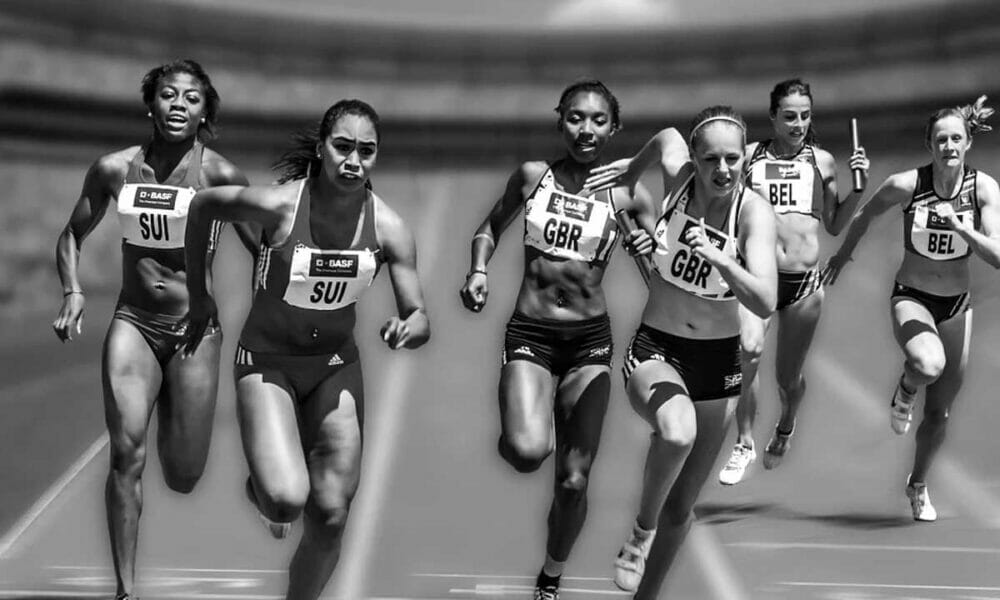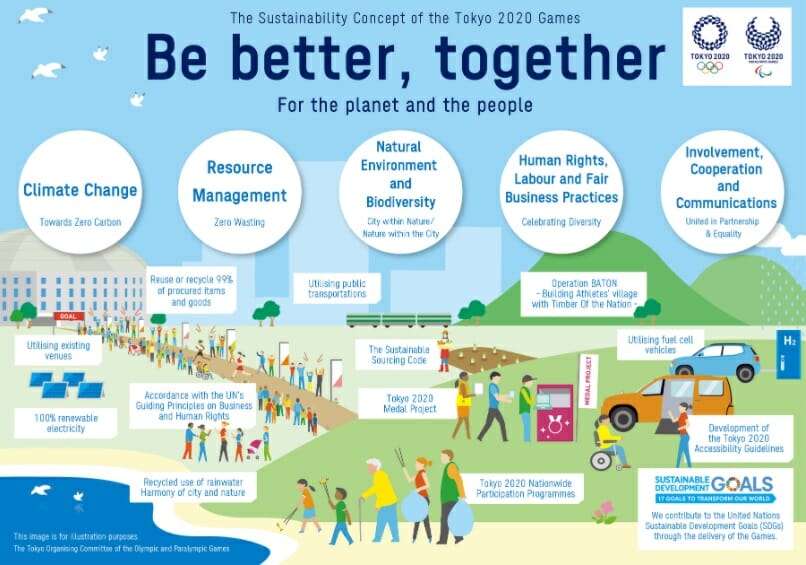Doubts about whether sport and sustainability are compatible concepts have been a matter of controversy since the 1970s. Already then the alarm was raised among some sectors interested in guaranteeing the protection and survival of amateur sport, especially as regards which refers to its continued disappearance in the face of the increasingly evident commercialization of sport.
There was speculation about the corrosion of the ethics of sport under the cloak of economic rationality , as well as the laws of the market, and it is that never before have two worlds as different as the economy and sport have been so united. As a consequence, we could say that one of them is eating the other. Is sport moving towards its own destruction and that of the environment that surrounds it , or is it possible to practice it without succumbing to consumerism and in a respectful way? Here we tell you.
Sport and sustainability
Solidarity, team sport, rejection of individualism , defense of the non-professionalization of sport, voluntary nature, or non-associationism are some of the fundamental ideals on which sport was based in ancient times. However, if we look at today’s sports landscape, what do we see? Are these prospects fulfilled?

In reality, and sadly, today we see the opposite. We observe a sport that has been corrupted by the influence of capital , that has become a predatory phenomenon that confronts the masses, that is associated with obtaining benefits such as recognition or money, or that incites a savage and brutal competition that sometimes crystallizes in problems as serious as dopping.
What is happening? Where is sport wandering as a cultural manifestation? Are you in danger? How can we protect sport and therefore protect people and the environment? Around 1979, a German scientific group put on the table the conflicts that exist between sport and the environment .
However, when such a proposal was presented to the General Board of the German Sports Federation (DSB), it was not particularly well received. The general climate in the face of this issue was permeated with mistrust and suspicion. Sport and the environment ? Sustainability instead of economic expansion? This was but a reflection of what is happening around the planet.
The failure of the union between sport and sustainability in the 70s as a precedent
It was its low acceptance that forced it to wait five years to be able to acquire political solidity through a commission called “Sports and the environment.” Of course, in this case the committee was not made up of scientists.
Can we think that the DSB suddenly found its love for the environment? Your sudden interest in keeping up appearances is more likely to take over. Starting in the mid-1970s, the environmental movement acquired special strength. Their organizations grew stronger and more relevant around the world.
These emerging groupings became a threat to the development of sport as an industrialized global phenomenon. To this end, the “Sports and Environment” commission was created: to convey an image that it was working from ecological ideals and not against them.
It is difficult to control the evolution of sport while protecting its original fundamentals in terms of morals and ethics. But where does the obstacle really lie? On the money. And, more specifically, in the lucrative industry that has been generated around the world of sports.

Ethics, industry and sport today
Today, sport has become synonymous with a complex industrial machinery contextualized in the free market and which presents an opaque network of interrelations. The connections that occur within this industrial network lead to the formulation of a series of negotiations and agreements. Of course, these deals are backed by a wide variety of interests, mostly financial. This conjunction of negotiations is multilevel and plays a decisive factor in the evolution of the sports world.
The market, when it comes to morality, is misplaced. We could say that the market and ethics are two conflicts that conflict very often, and that many times they are even excluded. Many times the economy finds productivity precisely in the dissociation of both concepts.
In reality, ethics costs money and breaks the fundamental principle of economics: competition within the market. We could say that those economic agents that allow ethical principles to emerge in their behavior almost inevitably suffer economic losses. In addition, those members of a board of directors are not elected or re-elected for giving priority to their ethical responsibility. On the contrary, the economic success achieved is used as a reference.
The pressure exerted by the media, sports clubs or sponsors deserves special attention. All of them are direct or indirect economic agents that seek benefits, which limits the field of action of ethics . Finally, we get a clear result: The moral ideals of the Olympic Games end up being transformed into a mere marketing strategy.

Sport and sustainability: the problems
But, how is all this reflected in the day to day? Some of the most listened to manifestations in relation to the concept of sport and sustainability are:
- The unnecessary and magnitude of the Olympic Games: it is an extraordinarily expensive event that directly or indirectly disrupts the global economy. For example, all kinds of infrastructures are created that later cannot be used again.
- The macro sports events that take place around the world involve unnecessary and high polluting loads . And it is that each sporting event generates effects that can hardly be alleviated with the passage of time. Construction of infrastructures, environmental consequences, increased energy consumption, accumulation of garbage, multiplication of trips … And we could continue. Did you know that according to a study carried out by the University of Cardiff (Wales), sporting events multiply the negative impact on the environment by seven ? To give you an idea, a 2019 London marathon of runners left a trail of no more and no less than 350,000 plastic bottles scattered around the city!
- Dopping: Lack of control over the consumption and trafficking of doping substances. These substances evolve over time to acquire undetectable formats. As a consequence, the ethical and fundamental values of sport are corrupted. In the end, concepts such as competitiveness, individuality, and the obsession to achieve fame at any cost acquire greater power.
- Instrumentalization of sport in favor of the economy and politics.
- Security problems: the celebration of massive and international events translates into crowds caused by fans that lead to violence on many occasions. On the other hand, these events cause the threats of terrorist attacks to increase considerably.
- Dependence: as new technologies develop there is a greater dependence of sport on them.
Looking to the future
But what direction will the sports world take in the next decade? Will we continue in a stalemate with regard to certain problems arising from the sports industry? It is important to know that all evolution requires some alteration. The world of sports is no different from other cultural manifestations and therefore we cannot expect its presence to grow indefinitely.
Much less still if it remains within a predatory system and far removed in many aspects from ethics and social responsibility. What will become of Olympism in the future? Will you learn to build the foundation of sport and sustainability from a more moderate and respectful perspective?
